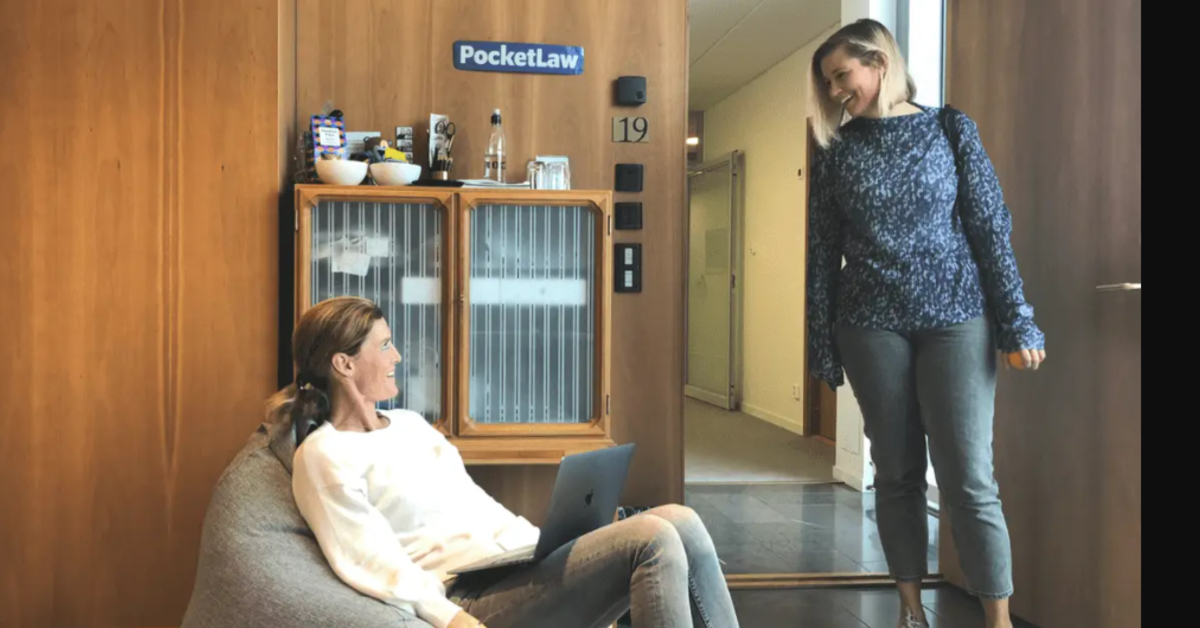Image credits: Pocketlaw
In the last few years, a significant number of legal startups have entered the legal market. At present, the legal tech industry as a whole is leveraging next-generation solutions like AI and Big Data analytics, transforming the practice of law and legal services.
Most legal tech startups are striving to make legal services accessible to everyone. Why? The legal and judiciary system, in general, is complex and expensive to use.
Here are the ten top international startups shortlisted for the 2021 Future Hamburg Award
Due to these limitations, many small businesses and individuals have not had fair share of access to the legal system. While big organisations with deep pockets can pay, it’s the SMEs that fail in the end.
And this is where Stockholm-based Pocketlaw solves a number of significant problems. The Swedish company is an all-in-one digital legal solution for businesses’ legal needs. So far, Pocketlaw has helped thousands of small and mid-sized companies in Sweden and now aims to do the same in the UK.
Debuts UK market
In the latest development, the legal tech startup has announced the expansion of its operation in the UK with an office in London.
According to the Centre for Economics and Business Research (CEBR), small businesses in the UK lose up to £13.6B (approx €15.8B) every year due to failures in taking care of their legal matters.
Pocketlaw chose the UK as its first international market due to sector potential and the demand for affordable legal services.
Notably, the Swedish legal tech firm has doubled its customer base and tripled its annual recurring revenue between December 2020 and April 2021, says the company.
How Pocketlaw was born?
While working in the Mergers and Acquisitions at Nordic business law firm Mannheimer Swartling, Kira Unger noticed considerable barriers to legal services for small businesses. At that point, she realised a simple and tech-driven solution could have provided an alternative.
On the other hand, Olga Beck-Friis was working as a management consultant at McKinsey, advising companies on how technology could improve processes and efficiency.
Their legal and strategic skillset complemented each other’s, and thus Pocketlaw was born.
All-in-one digital legal solution
Founded in 2018 by Kira Unger and Olga Beck-Friis, Pocketlaw is an all-in-one digital legal solution that enables companies to create contracts and solve legal challenges instantly and at an affordable fixed price.
Pocketlaw help companies handle contracts and legal matters in one place while providing a smart contract management system and direct access to lawyers on-demand.
The company already worked with prominent tech scale-ups such as telehealth pioneer Livi, e-scooter company Voi, and London’s Kingly Court restaurant Le Bab on its British pilot.
The contracts and documents are digitally secured in PocketLaw infrastructure and are updated constantly to reflect evolving British legislation.
Raised €1.5M
PocketLaw now has 20 full-time employees across nine different nationalities, and a C-suite made up of former senior employees from tech unicorns such as Spotify, Google, Zalando, and Klarna, and top law firms such as Hogan Lovells, Mannheimer Swartling, and Vinge.
The company has raised £1.3M (approx €1.5M) in investment to date from Sweden’s most prominent investors, such as Cristina Stenbeck (former Executive Chairman at Kinnevik), Susanna Campbell (Board Director at Kinnevik), and Johan Andersson (CEO of Mellby Gård).
Olga Beck-Friis, PocketLaw COO and co-founder, comments, “In an increasingly globalised world, the complexity of legal hurdles for small and medium-sized businesses is increasing. But with the right toolkit, anyone can solve their day-to-day challenges themselves and avoid spending time and money consulting with lawyers. That’s why we created PocketLaw, to empower businesses to use legal as a growth accelerator rather than an obstacle. The British sector is still very traditional, and existing legal software solutions tend to have lawyers, rather than their clients, in mind. We’ve come to the UK to change this.”
Here’s how to build one that doesn’t, according to this expert…










